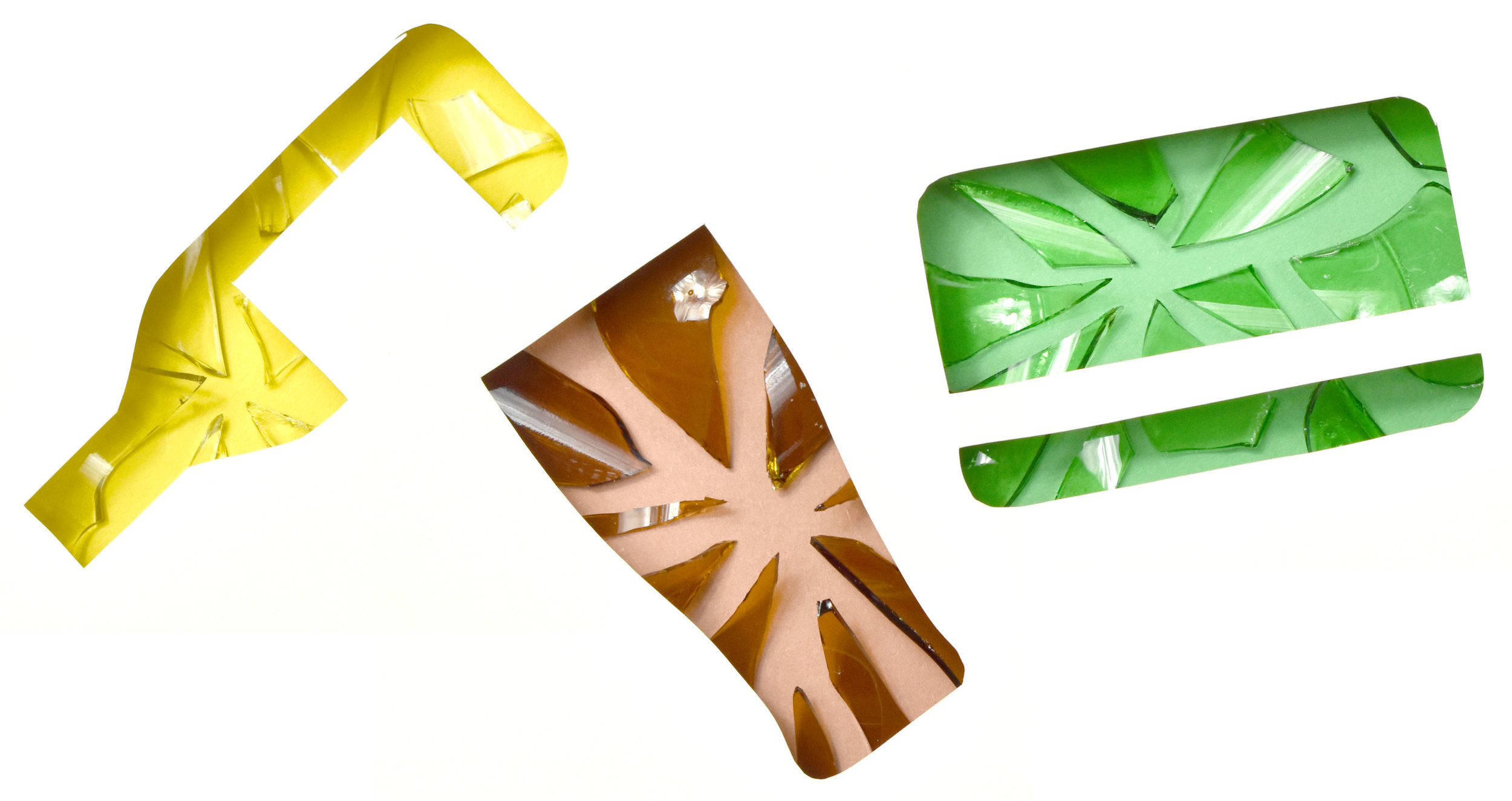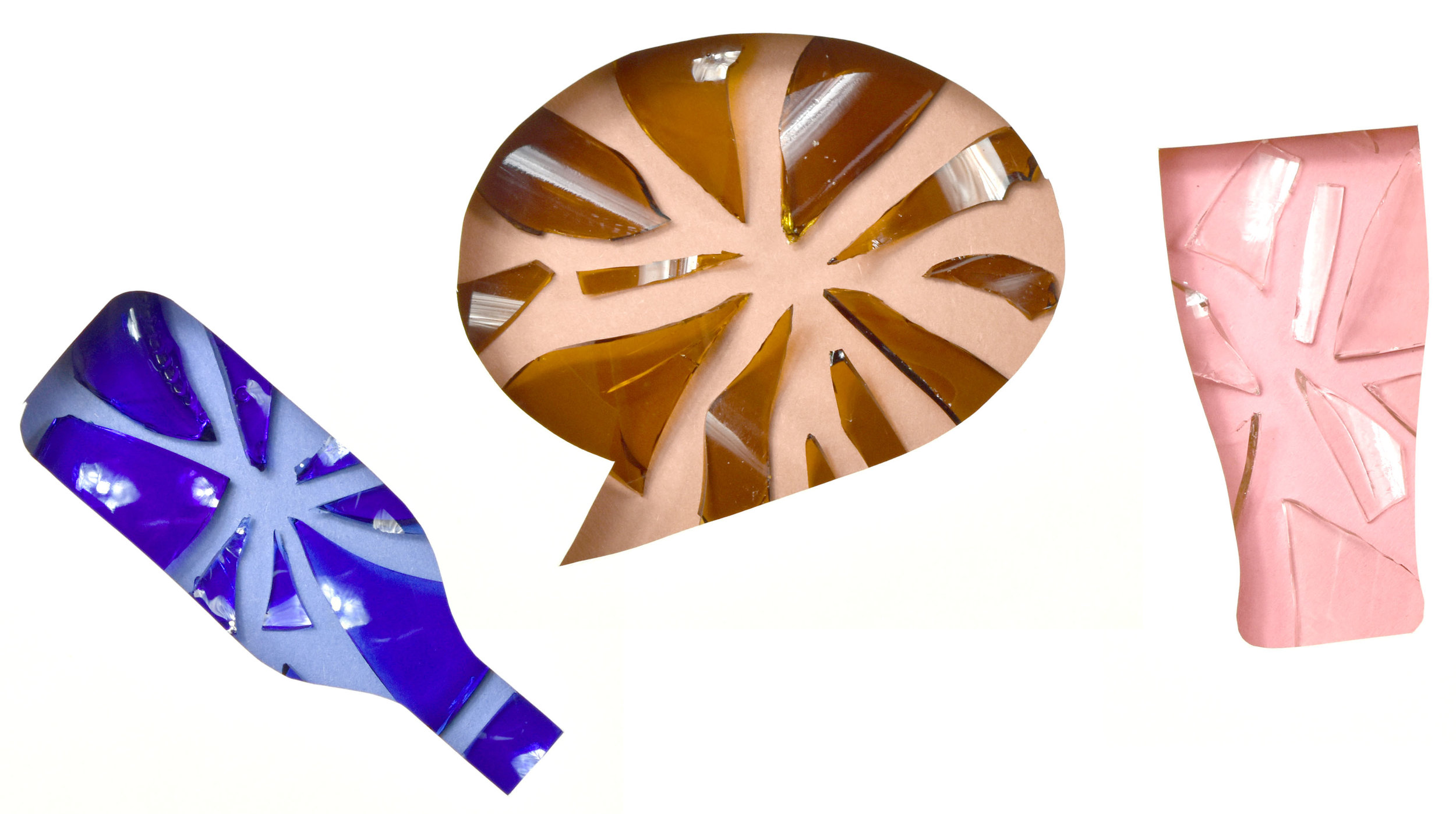I’ve done a lot of stupid stuff in my life.
At 17, I moved to Los Angeles to pursue a career in screenwriting. At 18, I dropped out of college. By 19, I had two staff writing jobs under my belt, and by 20, I’d already had a slight mental breakdown, fleeing to New York as I “quit” Hollywood, only to subsequently “unquit” Hollywood the second someone offered me another writing job and I realized how unequipped I was to be away from easy weed. By 21, I’d been working steadily, but not on things I felt were necessarily inspiring any sort of growth in me as a writer. So when MTV asked if I wanted to write for the European Music Awards (I did!), and if I had a valid passport (I did not!), of course I immediately answered “yes” to both.
The awards were being held in—oooh, la la—Milan, so I quickly acquired a new passport in a way that I found so suspiciously easy, you’d think I hadn’t been white my whole life. Coincidentally, the EMAs were airing a couple days before my birthday, so I asked MTV if they would extend my return date so I might take the chance to do some traveling around the UK. (They were kind enough to oblige.) And that’s how I ended up in Dunfermline, a classically quaint town in Fife, Scotland, on my 22nd birthday, miles away from the B&B where I stayed, with a sinus infection, a broken phone, and a credit card.
Now, the first two are problematic for obvious reasons, but I had not known at the time how magnificently idiotic traveling overseas without cash can be. After a day of taking grinning selfies with local sheep and cows, I got a ride into the center of Dunfermline only to find out hours later that I had no idea how to get back and no money to get there.
Here’s something I’ll tell you now that I wish someone had told me: absolutely no one in rural Scotland takes credit cards.
Realizing I’d have to engage in light social interaction if I didn’t want to spend the night on a bench at the bus station, I approached the ticket teller. We spent maybe five minutes or so desperately trying our hardest to communicate. I was unsure of exactly where it was I was even trying to go, and he was proffering different bus routes in the hope that one might inspire some heretofore blocked geographical sense in me. I had about given up, returning to my spot on the bench where I figured I’d have a good cry, when a man who had been standing in the background stepped forward like a superhero from a dark alley.
“Excuse me,” he said, and I turned, equal parts embarrassed and wary. He reminded me of my high school calculus teacher, a truly adorable older white man with a soft voice and softer sweaters, which he used to rub while considering an especially tricky math problem. His other hand would usually clasp the bald skin on the top of his head, which gave the impression that he was performing the most intellectual version of making circles on your belly and patting your head at the same time.
“I think you mean Balmule House,” he said, blinking at me through what can only be described as “spectacles.”
“What?” I responded, dumbly.
“I believe yer saying Balmule House.” In his brogue, I could hear the correct pronunciation of the B&B for the first time. The old man turned to the teller: “She means Balmule House.”
Immediately, a look of ecstatic realization fell over the teller’s face. Oh, thank god, I thought. Smiling widely, the teller informed that, indeed, there were still no buses to Balmule House.
“His hand would clasp the bald skin, which gave the impression he was performing an intellectual version of making circles on your belly and patting your head at the same time.”
I was dejected to say the least.
Shuffling away from the counter, I was past tears as I accepted that I’d be sleeping in a bus station before attempting to walk back in the morning. Things were already bad, I figured, no need to work myself up and make it worse. I was eyeing a particularly cozy corner of the bench I thought I might curl up in when the same old man came over and asked me, in so many words, what the ever-loving fuck was going on here?
That got me. I felt the tears well up in the back of my throat as I explained that I was on vacation, my phone had broken and wouldn’t charge, and no one would take my credit card. He was silent as I talked, stopping me only once, briefly, to wish me a “happy birthday.” After I had run through the litany of my poor choices, he gestured for me to wait inside and disappeared out the front door.
In the moments he was gone, my brain waged a minor war with itself. One side like a four-year-old who knows being upset won’t help the situation but can’t stop wailing anyways, only wanting to go home, and, the other, that inner child’s older sibling, rolling her eyes at the perceived “neediness” of an incompetent baby. I almost ran away, frankly, just to avoid feeling whatever this mix of shame and gratitude and helplessness was.
But then the man re-appeared, smiling and beckoning. He told me he was a longtime bus driver here, and so he’s friendly with all the cab drivers who wait outside. He informed me that he had spoken to one of his buddies, who had agreed to drive me back, even though I only had a credit card. He had already informed the driver of my destination. He opened the door for me and closed it behind me. I shook his hand through the window and thanked him over and over again. I distinctly remember that he never actually said “you’re welcome.” He wasn’t rude. It was more like this situation was so undeserving of gratitude—after all, he was just a human helping another human—that he wouldn’t dignify my thanks with a response. All of which is to say: this man is a living angel and I imagine he’s brightening lives to this very day.
Later in the week, I visited a friend in London. At this point, my sinus infection had developed a nasty side case of Laryngitis, making it impossible to form any sound with my throat. So, obviously we decided to go out that night in Shoreditch with some of his work colleagues.
We reached the end of the night, and I was surprised to find myself in a state of, well, I believe the technical phrase is “super drunk.” My friend and his girlfriend had left an hour or so earlier. I had remained behind with two of their co-workers who lived nearby. But when they, too, mentioned they were taking off, I somehow couldn’t put two and two together that them leaving meant I’d be staying, alone. So I said my goodbyes, and there I was, alone, and, for some reason, shocked that I was by myself, at a bar, in a foreign country, with no phone, at 2am. Where was my Airbnb? Who knows? Poor choices.
Having completely lost my voice, I stole a pen from the bar and found the least threatening person I could—a young guy helping a slightly larger guy vomit into the gutter outside. “That guy seems like a nurturer,” I thought, before beelining for him.
Tapping him on the shoulder, I pointed at my inner forearm, where I'd written down such helpful and not confusing or totally insane things like:
“I’m Shelby,” and...
“I lost my voice, I’m not crazy,” and...
“Do you have a phone I could use to find an address in my email?”
I was a bit incoherent to say the least, not to mention quickly running out of free skin. The poor guy looked between me and his still-puking buddy with an expression that read, “Why? Why now? Why, gods? Why me?” After looking me over one last time, he reluctantly explained, “This is my cousin. He’s pretty drunk. We have an Uber coming and a spare room. Do you want to just crash there?” To which I, an intelligent, realistic, modern young woman, who has seen plenty of basic cable true-crime dramas, said, “Oh my god, yes!”
“I found the least threatening person I could, a young guy helping a slightly larger guy vomit into the gutter outside. ‘This guy seems like a nurturer,’ I thought.”
I ended up sleeping in that stranger’s guest room until 3pm the next day, sneaking out only after failing to find a single pen, pencil, or scrap of usable paper on which to leave a note. I made my way back to my Airbnb, thoroughly chagrined at the position I had put myself in.
You’re doing great, Shelby. What's next?
A day after that, I met up with a friend from high school who, by kismet, was working in London. We grabbed drinks and decided at some point that we’d both been overcome with a need for bagels. Yelping a locally famous, 24-hour spot, we made our loud, silly way there. After catching up over our respective carbs, my friend drew up the map back to my place on her phone. It was walking distance, after all, no big deal. I studied it thoroughly and hugged her goodbye, waving her off through the back window of an Uber. Pushing 3:30am at this point, I started off in the direction Google had indicated, but the path quickly diverged from the more well-lit, populated thoroughfares.
The thought of anything happening to me on a dark side street in the dead of night kept me from continuing on my pre-ordained route. “I got this, probably,” I thought, as I set off on my own, hoping to box back around to the route by way of more well-traveled roads.
On my 40-minute walk, I saw flower vendors setting up their stalls for that morning’s market. I experienced London fog in all of its gloomy, ghastly glory. And I got myself terribly, miserably lost. Finally, I spotted an off-duty EMT driver, who was playing Angry Birds on his phone—presumably his one moment of respite before heading into work. I rapped on his window.
“Excuse me, I’m really lost and my phone died. Could you look up an address for me on your phone?”
Keep in mind, I still have only half a voice at this point. The EMT squinted at me for a second, before pulling up Google Maps and typing in the address. He showed it to me on the map, and tried to explain the best route back, but as I kept vacantly nodding, it became clear to him that I had no clue. Sighing, he looked between me and the phone. You could almost hear the conversation he had with himself.
Am I really going to be responsible for this young woman being found dead in a ditch somewhere? What would the other EMTs think if they knew I was allowing this future emergency to happen? How long have I been internally debating as this child stares at me, desperately looking for help? I should really say something out loud.
Finally, he offered: “I’m about to leave for work, and this isn’t very far. I could drop you off on my way?” The way he said it made it clear that he at least half-hoped I wouldn’t take him up on it. But of course I did.
We had a pleasant, if slightly-tense, chat on the drive. He regarded me with a wry kind of suspicion, like he couldn’t tell whether to laugh at me or yell at me for being so irresponsible. He was “smgdh” personified, and I was so grateful for it. I thanked him again as I got out of the van, and he drove further into the dawn, off to save other lives.
It was a self-destructive trip, in a way. OK, in a few ways. Lots of ways. I was depressed after a period of lackluster employment, unmoored, traveling for the sake of traveling. Of course, I didn’t intend to put myself in dangerous situations consciously, but I clearly wasn’t The Most Safe at the time, moving through life in somewhat of a passive fugue.
Any one of these people could have tied me up in a basement, or thrown me in a ditch, or done any number of less intense but equally weird and/or gruesome things to me. But they didn’t. They looked at someone in need of help...and they helped. I certainly can’t promise the same result for anyone else. And, frankly, I shudder in retrospect at the positions I put myself in. But there I was, again and again: totally, irrevocably boned—to the point at which I, Shelby Fero, had to reach out to another person for help. And I received it! In a time where it feels like everyone is opposed to everyone, these small moments are a sigh of relief.
I remember once, as a kid, hearing about immersion therapy for arachnophobics that used low-grade "virtual reality goggles" and a puppet tarantula. The idea was that one could work through their absolute terror by spending hours being touched by this "spider," without dealing with the hassle of the real thing. Apparently, it worked. Personally, I always pictured myself sitting in an office chair with a stuffed animal on my arm, just screaming and screaming until I eventually tuckered myself out enough to fall asleep—only to wake up, notice the giant spider, and start screaming all over again.
My point is that personal growth has always been, let's say, slightly hard for me.
While almost deified in my reverence for it, I find the concept of change to be almost impossible. This trip ended up being my own sort of immersion therapy. Instead of spiders, my fear at 22 was that of stagnation, detachment. I felt hardened as a person, like I'd been emotionally and mentally calcified. I feared that I was becoming a cold person. But by accidentally rendering myself completely and utterly vulnerable, again and again, only to resurface on the other side with—surprise!—the help of a stranger, I learned that my tether to people had never been severed. I'd just drifted so far back that the cord had been pulled too thin to see. It was the worst trip of my life, and I wouldn't trade it for the world.














